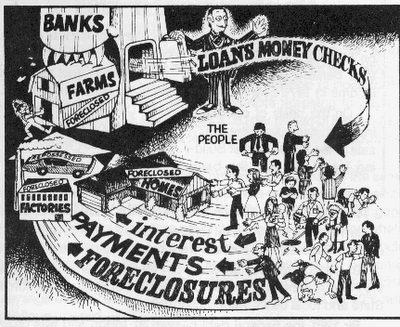In Jim Collin’s new book Great by Choice he asks the question: What’s coming next?
All we know is that no one knows. In my last blog I shared with you the beliefs of Ray Dalio, that we are not in an economic recession but rather a deleveraging period.  What’s the essential difference between a recession and deleveraging? A recession is a periodic drop in productivity gains. Recessions are caused by the interplay between normal business cycles and government monetary policy.
What’s the essential difference between a recession and deleveraging? A recession is a periodic drop in productivity gains. Recessions are caused by the interplay between normal business cycles and government monetary policy.
Deleveragings occur every 50 years – and they last 10-20 years. The government cannot just drop interest rates or add “liquidity” to monetary policy like they can to “fix” a recession. Deleveragings, according to Dalio, are the result of too much credit created that cannot be repaid. Fixing a deleveraging takes longer and requires more pain.
Recessions last less than 2 years.
Deleveragings occur every 50 years – and they last 10-20 years.
Does your business have the discipline to handle this kind of economic environment for the next 10-20 years? Does your business have the necessary Strategic Discipline in place to succeed in the present imbalance that started in 2008 and likely will prevail for the next decade?
Consider Collins identification in Great by Choice on the difference in great companies: throw leaders into an extreme environment, and it will separate the stark differences between greatness and mediocrity.
Want to know what it takes to build a great company? Collins’ answer: “If you apply our findings with discipline, your chances of building an enduring great company will be higher than if you behave like a comparison case.”
Want to feel calm and confident that you can navigate the economic conditions ahead? Then increase your understanding of what it takes to survive, navigate, and prevail. You will be much better prepared for what we cannot possibly predict. Part of that preparation is planning and developing excellent execution methods. The elements of Strategic Discipline were identified as crucial elements that catapulted John D Rockefeller to success with Standard Oil. They are critical to your business growth. It’s the essential method that separates good to great and Great by Choice companies.
Have you planned your 2012? What’s the best way for you to forecast your future? Influential management thinker Peter Drucker taught the best—perhaps even the only—way to predict the future is to create it.
Right now you need to be planning your 2012. Schedule at least 2 days now, without distractions, to prepare your annual plan. If you’ve not done so already and need help, plan to attend our Four Decisions Workshop on November 9th and register here. If you can’t get here look for a Rockefeller Habits workshop location closer to you here.
In Great by Choice Collins heralds the story of Norwegian explorer Roald Amundsen, who led the first Antarctic expedition to reach the South Pole between 1910 and 1912, as a great example of the disciplined that separates greatness from mediocrity.
“Victory awaits him who has everything in order—luck people call it. Defeat is certain for him who has neglected to take the necessary precautions in time; this is called bad luck.”
Prepare now. We'll explore Amundsen’s philosophy and the preparations he made to discover and explore the South Pole, and how Collins sees these apply to business success, in my blogs after the Growth Summit. Wednesday’s blog will be from the Growth Summit in Phoenix.






.jpeg?width=150&height=135&name=Hand%20with%20marker%20writing%20the%20question%20Whats%20Next_%20(1).jpeg)

